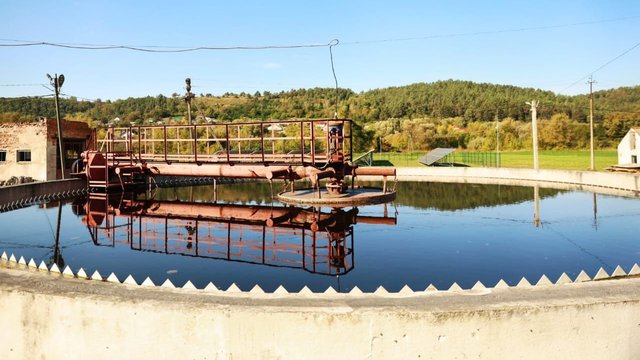Water, wastewater utility sites in Chortkiv shift to RES sources thanks to donor aid of EUR 515,000

Three solar power plants with a total capacity of 340 kW, built for the city water supply and sewage systems of the Chortkiv Production Department of Water Supply and Sewerage Services, were officially put into operation on September 23 in Chortkiv (Ternopil region), the press service of the NEFCO corporation (Nordic Environment Finance Corporation), with whose support the project was implemented, reported.
The implementation of this demonstration project marks a significant step in supporting the country’s energy resilience. The Eastern Europe Energy Efficiency and Environment Partnership (E5P) has provided EUR 460,000 in grant funding, with Sweden providing EUR 54,960 in technical assistance. The city of Chortkiv contributed EUR 33,846 in co-financing. The Egis team in Ukraine acted as a technical advisor and consultant.
The project's goal is to produce "green" electricity for the water utility, which ensures the uninterrupted operation of pumping stations and treatment facilities. The total capacity of the stations is 340 kW, which allows to provide about 20% of the facilities' electricity needs and guarantee the reliability of water supply, the press release states.
“Chortkiv has demonstrated that implementing projects like this is possible with support from international finance institutions and donors even under the difficult conditions of war. This approach offers hope that Ukraine’s long-term recovery will go beyond simply rebuilding what was destroyed and pave the way for a more sustainable, energy-independent and environmentally secure future. This initiative also sets an example for other cities on how to build modern infrastructure with an emphasis on a green transition and energy efficiency,” says Volodymyr Shmatko, Mayor of Chortkiv.
According to the press release, solar power plants ensure uninterrupted water supply for over 15,000 consumers. The use of renewable energy allows pumping stations and treatment plants to operate continuously, reducing dependence on centralized electricity sources and increasing the energy sustainability of the community. It is planned to apply an "active consumer" tariff, which potentially allows the Chortkiv Production Department of Water Supply and Sewerage Services to transfer excess electricity to the national grid, increasing energy efficiency and reducing dependence on fossil fuels. It is expected that replacing part of the electricity supplied from the grid with solar energy will reduce CO₂ emissions by approximately 300 tonnes per year and save the city budget about EUR 70,000 annually.
“Solar power has many advantages over other energy sources, even renewable ones,” explains Jyrki Rautamäki, Senior Consultant at Nefco. “Solar power plants are economical and have a relatively short construction time. They are also much safer to operate than fuel generators, as well as producing no noise, requiring less maintenance and offering more reliable operation than mechanical systems, which are prone to breakdowns. Additionally, photovoltaic panels are durable and long-lasting.”
The Egis team supported the project at all stages — from planning and tender procedures to technical supervision of construction and commissioning of the facilities.






